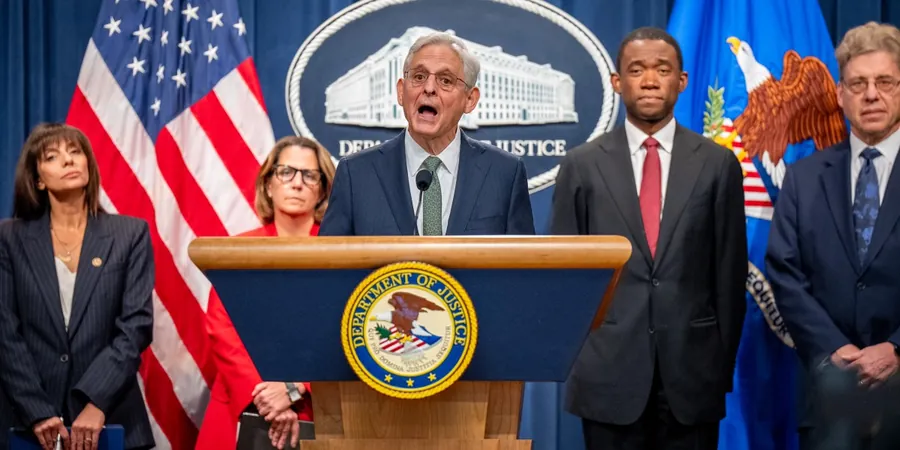
TD Bank's Shocking $3.1 Billion Penalty: The Dark Side of Convenience in Banking
2024-10-10
Author: Ken Lee
Introduction
In an unprecedented move, U.S. Attorney General Merrick Garland announced today that TD Bank has become the largest bank in U.S. history to plead guilty to violations of the Bank Secrecy Act (BSA), resulting in a staggering $3.1 billion fine. This settlement marks a historic first as TD Bank stands guilty of conspiracy to commit money laundering—a critical blow to the finance industry.
Largest Penalty in History
According to the Financial Crimes Enforcement Network (FinCEN), this $1.3 billion penalty is the largest ever imposed on a depository institution in the history of the U.S. Treasury. The investigation, which spanned from January 2014 to October 2023, revealed systemic failures in TD Bank's anti-money laundering (AML) policies. These deficiencies led to a shocking $18.3 trillion in transaction activity that went unmonitored.
The Convenience Factor
“By making its services convenient for criminals, it became one,” Garland stated, highlighting how the bank’s focus on budget constraints, internally dubbed a 'flat cost paradigm,' hindered the development of a robust AML program. While TD Bank's policies might have seemed adequate on paper, regulatory officials identified fundamental flaws that turned it into an 'easy target' for criminals.
Money Laundering Networks
Adding a disturbing twist, the Department of Justice (DOJ) revealed that between 2019 and 2023, multiple money laundering networks utilized TD Bank to funnel over $670 million. One particular network alone channeled more than $470 million through large cash deposits into phony accounts. This negligence made it alarmingly simple for these criminal entities to exploit the bank's services.
TD Bank's Acknowledgments
The settlement comes with profound admissions from TD Bank, acknowledging its willful failures to maintain an AML program up to the required standards. Investigators found that the bank processed transactions through popular apps like Venmo and Zelle that were suspiciously linked to human trafficking. Not only did TD Bank fail to monitor these transactions, but it also neglected to promptly report them, exacerbating the gravity of its oversight.
Regulatory Concerns
Wally Adeyemo, Deputy Secretary of the Treasury, expressed deep concerns over TD Bank’s chronic failures, stating, 'While the vast majority of financial institutions cooperate with FinCEN to safeguard the integrity of the U.S. financial system, TD Bank did the opposite.' The ramifications of TD Bank's actions extend beyond financial penalties; they expose a troubling intersection between convenience-driven banking and criminal activity, ranging from fentanyl trafficking to terrorist financing.
Industry Implications
As the dust settles on this monumental case, industry experts warn that other financial institutions must take heed of TD Bank's mistakes. A comprehensive review of AML practices and a commitment to robust oversight are now more critical than ever to prevent similar failures from occurring in the future.
Conclusion
This shocking revelation raises serious questions: how can we trust financial institutions to safeguard our financial systems when notorious breaches can occur on such a massive scale? The implications of TD Bank's oversight could resonate throughout the financial sector for years to come.


 Brasil (PT)
Brasil (PT)
 Canada (EN)
Canada (EN)
 Chile (ES)
Chile (ES)
 España (ES)
España (ES)
 France (FR)
France (FR)
 Hong Kong (EN)
Hong Kong (EN)
 Italia (IT)
Italia (IT)
 日本 (JA)
日本 (JA)
 Magyarország (HU)
Magyarország (HU)
 Norge (NO)
Norge (NO)
 Polska (PL)
Polska (PL)
 Schweiz (DE)
Schweiz (DE)
 Singapore (EN)
Singapore (EN)
 Sverige (SV)
Sverige (SV)
 Suomi (FI)
Suomi (FI)
 Türkiye (TR)
Türkiye (TR)